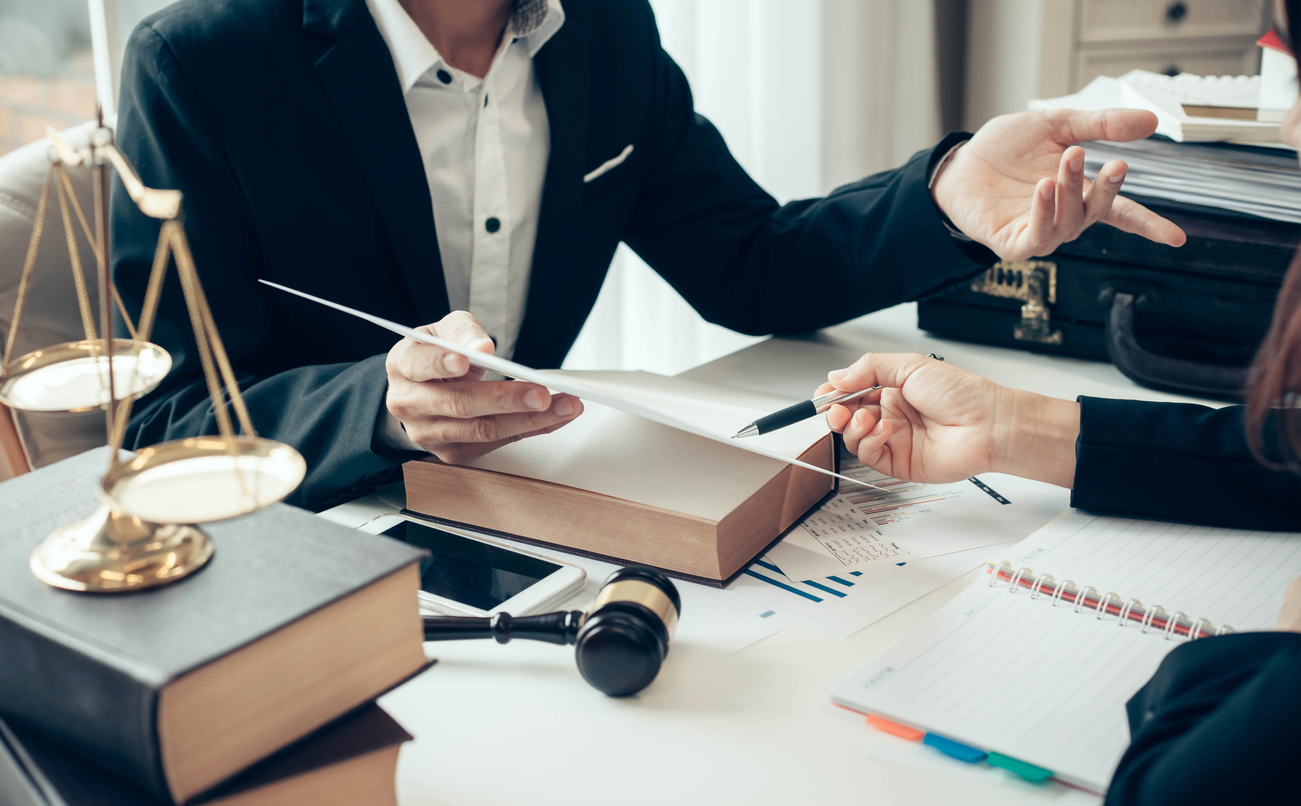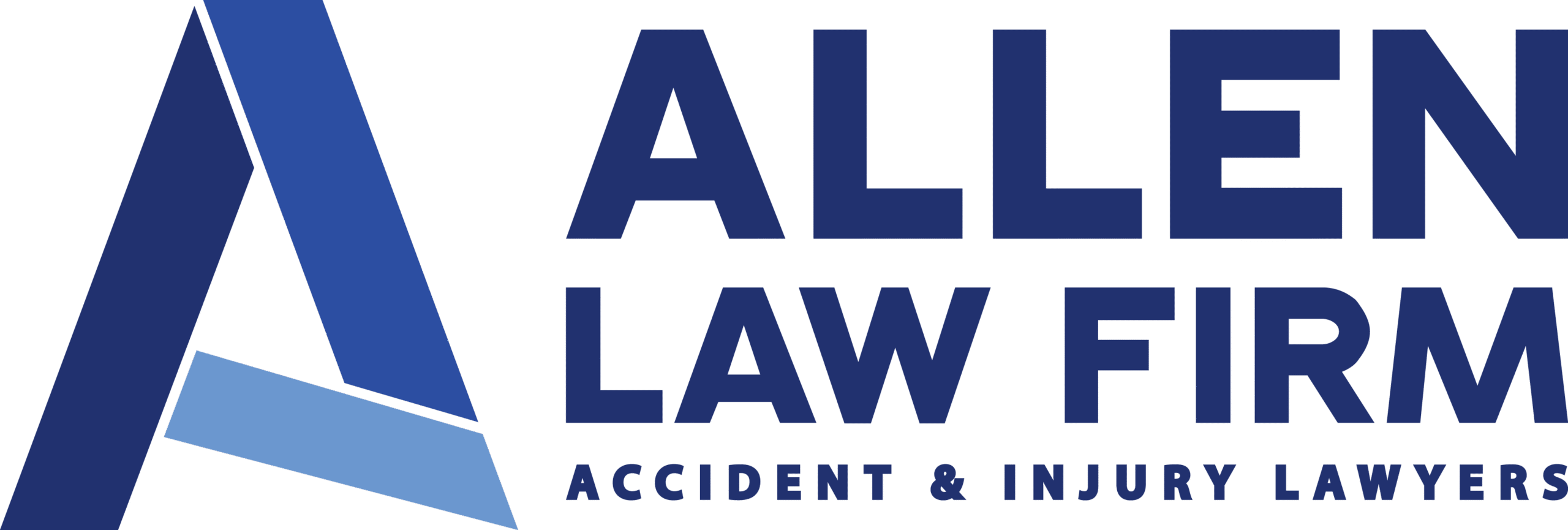How Do Personal Injury Lawyers in Gainesville, FL, Get Paid?
Bill Allen | November 17, 2022 | Personal Injury

Most personal injury lawyers get paid by winning cases. If the attorney takes a case on a contingency fee, the lawyer must recover damages for their client to receive money for their work. In other words, if the lawyer does not win the case, they do not get paid.
How Do Personal Injury Lawyers in Gainesville Bill for Their Services?
A lawyer can bill for services based on a few different models. Common retainer agreements for lawyers include:
- Hourly – The lawyer bills a specific amount for all time spent working on the case based on an hourly fee. Typically, the lawyer bills in increments of an hour, such as 10 or 15 minutes. Hourly fees are often used in litigation cases.
- Flat Fee – An attorney might charge a flat fee for services. Flat fees are often used in real estate closings.
- Contingency Fees – Most personal injury lawyers in Gainesville charge a contingency fee for personal injury cases. The lawyer agrees to represent the client for a percentage of the money the lawyer recovers for the personal injury claim.
Before hiring an attorney, discuss the legal fees with the lawyer. You need to understand how much you are paying the attorney and what the fee includes. Additionally, ask the lawyer who pays for any costs associated with the case, especially if the lawyer does not recover money for your claim.
How Is a Gainesville Personal Injury Lawyer Paid Under a Contingency Fee Agreement?
When you hire a personal injury lawyer, you sign a retainer agreement and contingency fee agreement. The Florida Rules of Professional Conduct set rules for contingency fees. Those rules include:
- The contingency fee agreement must be in writing
- The agreement must include the specific percentages the attorney charges for the case
- The client must read and sign a statement regarding their Client’s Rights
- A contingency fee agreement must state that the client does not owe the attorney any legal fees if the client rescinds (cancels) the agreement within three business days
When an attorney recovers money for a personal injury claim, the lawyer deposits the money into a trust account. Then, before cutting a check to the client, the attorney deducts an amount equal to the agreed-upon percentage for legal fees.
How Much Can a Lawyer Receive for a Contingency Fee?
Contingency fees are negotiable between the attorney and the client. However, lawyers must charge reasonable fees for their services. Factors used to determine whether an attorney’s fee is reasonable include:
- The average attorneys’ fees charged by other lawyers in the geographic area for similar cases
- The difficulty of the case, including the skills necessary to represent the client and the time required to handle the case
- The parties involved in the case
- The type of personal injury case
- The attorney’s experience, reputation, and abilities
- Whether a case settles through negotiations or goes to trial
- The results obtained and the amount recovered for the client
Florida sets limits on the amount of the contingency fee an attorney may charge for a personal injury case. The percentage is based on the amount recovered and whether the case is resolved before or after filing a lawsuit. For example, the contingency fee may increase if the lawyer must file a lawsuit and go to trial.
Furthermore, The Florida Constitution limits the contingency fee an attorney can charge for a medical malpractice case.
What Costs Are Involved in a Personal Injury Case?
An important issue to discuss with a personal injury lawyer is the costs of the case. The costs involved in pursuing a personal injury claim include, but are not limited to:
- Copy fees and postage
- Travel costs
- Fees to obtain medical records, accident reports, and other documents
- Deposition fees
- Expert witness fees
- Court filing fees
- Costs of preparing for trial
Typically, a personal injury law firm pays the costs as they are incurred. Then, when the attorney recovers money for the claim, the lawyer reimburses the law firm for the costs it paid from the settlement amount.
However, what happens if the lawyer does not win the case? Who is responsible for paying for the costs?
Before hiring a personal injury lawyer, ask the attorney about the costs incurred during the case. Specifically, ask the attorney if you are expected to reimburse the law firm for costs if the lawyer does not recover money for your claim.
Never sign a contingency fee agreement until you understand all the terms and conditions. Read the entire agreement and ask questions until you understand all aspects of how the personal injury attorney gets paid for legal services.
Contact Our Gainesville Personal Injury Law Firm in North Central Florida
If you need legal assistance, contact the Gainesville personal injury lawyers at Allen Law Accident & Injury Lawyers at your nearest location to schedule a free consultation today.
We have three convenient locations in North Central Florida:
Allen Law Accident & Injury Lawyers – Gainesville office
2550 SW 76th St #150
Gainesville, FL 32608
(877) 255-3652
Allen Law Accident & Injury Lawyers – Downtown Gainesville
621 W University Ave
Gainesville, FL 32601
(866) 928-6292
Allen Law Accident & Injury Lawyers – Ocala Office
112 S Pine Ave
Ocala, FL 34471
(352) 351-3258

